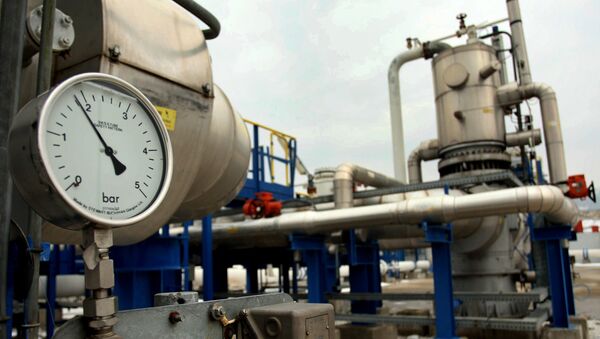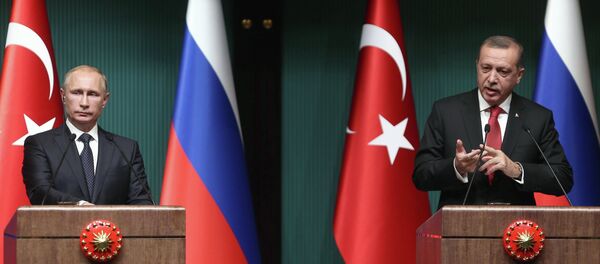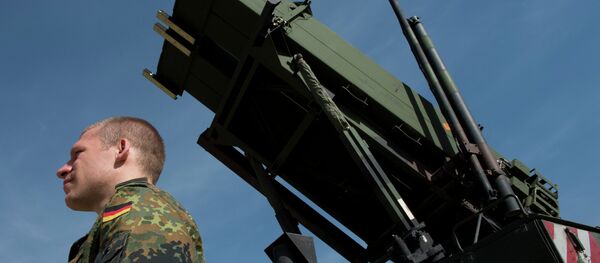Moscow is Ankara’s biggest partner in the energy sector, with nearly 70 percent of natural gas coming to Turkey from Russia. Turkey also buys large amount of Russian-produced crude oil and mazut.
The Turkish Stream is a project that can transform the international balance. And it is very important that such initiatives do not fall victim to political games, journalist Mehmet Kara wrote in his article for the Turkish newspaper Dunya.
However, ahead of the Turkish general election on June 7 the talks on the Turkish Stream slowed down, and then – after the election – they were suspended.
Recently, the Turkish Stream issue has been back on the energy and diplomatic agenda due to the Syrian crisis. After a Russian Su-30 jet fighter violated Turkish airspace on October 3, Turkish Prime Minister Recep Tayyip Erdogan said the country could reconsider buying Russian gas.
Earlier, Alexei Miller, CEO of Russian gas-producing giant Gazprom, announced the capability of the Turkish Stream pipeline would be halved.
The question now is would Turkey have to abandon its dream of becoming a regional energy hub or not, the journalist wrote.
According to the article, as the project is commercially and strategically important it would – sooner or later – be realized.
The Turkish government should reconsider its stance on demanding a discount for Russian gas supplies. The project should be implemented, and then there would be a scope for strategic maneuvering, including demanding a cut in price.
Another point is the Turkish plan to transport Israeli and Cyprian gas to Europe. If Ankara is in it should be ready to deal with such serious political problems, as the conflict between Israel and Palestine or the Cyprus dispute.
Nevertheless, Turkey has potential for becoming a regional energy hub, but only if politics does not interfere with commercial interests, the author concluded.



